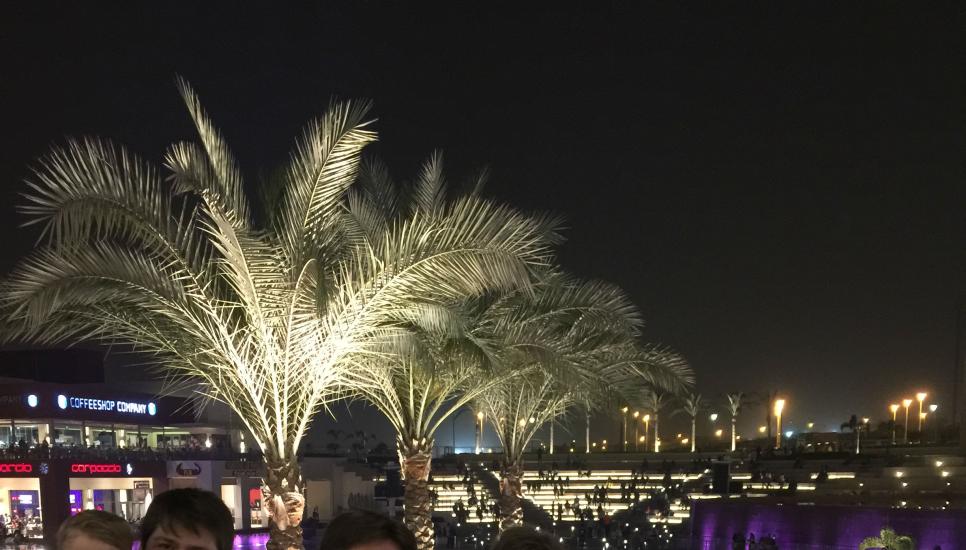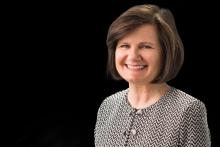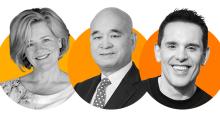Daaboul Industrial Group: Governance and leadership in the Middle East

Daaboul Industrial Groupstarted as a family business in Syria and is now one of the largest aluminum producers in the Middle East. In the first of a four-part series of case studies, Zita Nikoletta Verbenyi reports on three governance challenges overcome by the Daaboul family.
The Daaboul Industrial Group (DIG) was established in Syria by Mohammed Daaboul in 1976. A bold entrepreneur, he started work while still attending university and his dreams and ambitions expanded with every achievement. After almost 40 years the family patriarch is still the acting chairman of the family-owned group and is considered as one of Syria's living legends. By increasing the revenues with consistent growth rates of 20%-25% per annum until 2013, Mohammed created one of the largest aluminum producers in the Middle East. The group, as one of the largest private sector industrial groups in Syria, owns 300.000 sqm of industrial land with exports making up 40% of total turnover. It currently employs 1,300 people, although the workforce has dropped 35% since 2011 due to Syria's war.
Ownership, board composition, and non-family member employees
Currently the group is run by the first and the second generation. The founder and his five sons, Hassan, Mohammad Mumtaz, Muhab, Mutassem, and Abdulmunemare actively working in the business and are on the company's board with the patriarch retaining the majority ownership stake. The only daughter, Hania, is finishing her studies in Canada and already has a family herself - her engagement with the business is expected to take more time. None of the sons' wives are involved within the business.
The operating companies are all directly led by the six family members and decisions are decentralised to the operating company level, although with the push of few second generation members they are attempting to engage non-family members in managerial roles. The family makes all attempts to be transparent on a board level and has already made steps to create a more centralised and formal holding company structure, however DIG is not yet a legal entity acting as a holding company. An essential factor in DIG's success is the attraction, retention, and engagement of their professional staff. The family has strict standards when it comes to the selection of their work force, morally, and professionally too.
Three challenges around governance and their solutions
Challenge 1: Short-term opportunism and creaking governance
The risk-taker patriarch laid the foundations of the highly successful family group in an era of much uncertainty, operating in a fast-paced environment where short-termism was required with circumstances, prices, and trades changing extremely quickly. Mohammed did not always have strategies behind each decision he made and could always act in an ad hoc way, these decisions were still mostly successful due to his remarkable navigation skills and high comprehension of the dynamic environment he lived in. Mohammed always re-invested his assets into the business, although some new investment decision caused difficulty in the business at the beginning due to a lack of stability and sometimes lack of proper financial planning resulting in cash flow difficulties with some big new projects, yet these were still mostly very successful.
However with the five sons in the business, a sound and transparent governance system and strong leadership was required. The constant growth was not sustainable without someone clearly defining actual roles and responsibilities and creating a rigid reporting culture within the family.
The family needed the consolidation and re-evaluation of the original informal corporate governance system which was not sufficiently equipped to deal with the growing complexities of the business. The aim was also to re-establish the group outside Syria and to further expand, as due to the war many of the family's assets were stranded in Syria and opportunities there were scarce.
Solution 1: A shared long-term vision
Mohammed was like a gifted artist - he had an extraordinary ability to paint a beautiful picture - it was just difficult sometimes to tell how he did it. Losses for many businesses have been considerable due to Syria's war, but the patriarch focused on the opportunitiesandthrived in a time when only very few could. His five sons brought in innovation, their strong analysis, and a strategic mindset with the aim to take the firm to the next level - becoming to an international company. The sons were listened to, although this meant several learning curves for the patriarch too.
Long-termism is now a shared vision within the family and all skills are utilised for the best of the company. For example, One of the second generation members is an excellent analyst and strategic thinker and contributed a lot to the creation of the new framework according to the circumstances. He felt that some of his other brothers were better at implementing this framework, putting the team's vision in to practice.
The patriarch's entrepreneurial spirit, drive, and desire to embrace lots of risks still resonates well within the family business, however the focus now lies not only in the financial results, but also on the strategies behind these decisions – with much more emphasis on risk analysis.
Challenge 2: Tearing itself apart?
Like many patriarchs in the region, Mohammed ensured each son was responsible for a separate business so that they would not have any business units in common to fight over. An unintended consequence was that thissplit of responsibilities didn't promote a sense of unity. At the same time, the sons worried that they there would be conflict in the future, as they did not know how each others working styles and what their key strengths were. They predicted that these disputes could heavily harm or even cause a threat to the existence of the group.
Unfortunately this scenario had unfolded for some of Mohammed's older brothers, whose children's continuous arguments eventually led to the business failing. Mohammed's nephews did not wish to work together when it came to their family business.
Another area of friction was around remuneration. Each of the separate businesses had different revenues, since it is almost impossible to set up five equally successful and identically maturing businesses at the same time. This led to quarrels as the companies with substantially different revenues did not produce the same salaries, although everyone was equally committed and involved. The performance-based compensation for the five sons making up the second generation had to be revisited.
Solution 2:Learning to fight together
The family decided to create multiple teams co-operating on multiple levels on varied projects and managed all the companies together. It resulted in greater efficiency and all the brothers felt more engaged. Although all six of them travel extensively and live in multiple countries, this model ensures that no one is attached to only one company, and everyone concentrates on the overall success of the group. Back in Syria there was a meeting each week, now only groups meet every week. Board meetings are less frequent and are only held three or four times a year.
A new compensation scheme was introduced where all the brothers were equally compensated for their efforts. Fights were reduced and they learned to fight together, not against each other.
Challenge 3: Costly mistakes
The patriarch was focusing on local expansions rather than expanding DIG internationally, and if it was not for the war in Syria, he would not have been as seriously involved in launching internationally as he is now. This was due to his strong patriotic feelings and sense of responsibility towards his own people and country. Since 2013 the group started to take serious steps towards entering new markets. However failures occurred since the group had little experience of cross-border businesses. With no real insights to these new markets and not enough prior preparation, some of the operations made losses. These were caused by the same great entrepreneurial spirit, which made the group successful – taking a huge amount of risks in many different countries. DIG were running expansions in Lebanon, Turkey, Italy, Egypt, Tunisia, Libya, Switzerland, Singapore, Luxembourg, Canada, Qatar, United Arab Emirates, Saudi Arabia, and Algeria in parallel. In the case of failure the blame was on the circumstances, instead of trying to analyze the actions that could have been done differently.
Solution 3: Looking before they leap
All family members were convinced that performing feasibility studies and business plans for the new ventures were a must to analyze the risks involved when expanding internationally which they had not taken into consideration. They could have managed these loss-making projects more efficiently had they been focusing only on a few things at the same time. They are now aware that one should always start a company with a certain conditions, be heavily involved in its establishment, and avoid mistakes by raising concerns in the board room.
The Egyptian company is now running a strong reporting system and is strictly following budgets. The same routine is ensured in the other sister firms too, as there are constant changes in the legal environment in all the countries in which the family is operating.
The family behind DIG is trying to run a harmonious family governance system and is focusing on building out their corporate governance framework. This is achieved by replacing the no longer needed instinctive decision making with more strategic decision making shared by Mohammed and his sons. The six family members now work in teams, the sons are paid the same, cover responsibilities depending on their expertise, and have learnt from their mistakes when expanding internationally. Feasibility studies and business plans for new ventures are now part of their risk assessment.
DIG is running two joint ventures – one in Egypt with the prestigious Bin Laden family from Saudi Arabia (with their company CPC) and another with an esteemed Emirati firm (whose name cannot yet be disclosed). Moved one of their key operations to Jordan. Further international expansions are on the horizon too. A future goal for DIG is to add senior professionals in key positions to the group, as there are none at the moment. With a shared long-term vision and strong reporting systems, the Daaboul family is thriving.
KEY POINTS:
• Add to the instinctive decision making a strategic approach when the new management members of the next generation joined.
• Organizational structures and governance need to serve the long-term interests of the family – it is always about the family and the family business
• Do not separate your family members for the sake of the business, make them work in teams, they will learn to fight together
• Equality in compensation amongst the 2nd generation was needed in this case– by the 3rd and 4th generation this may not be required
• Have non-family members in key senior positions






